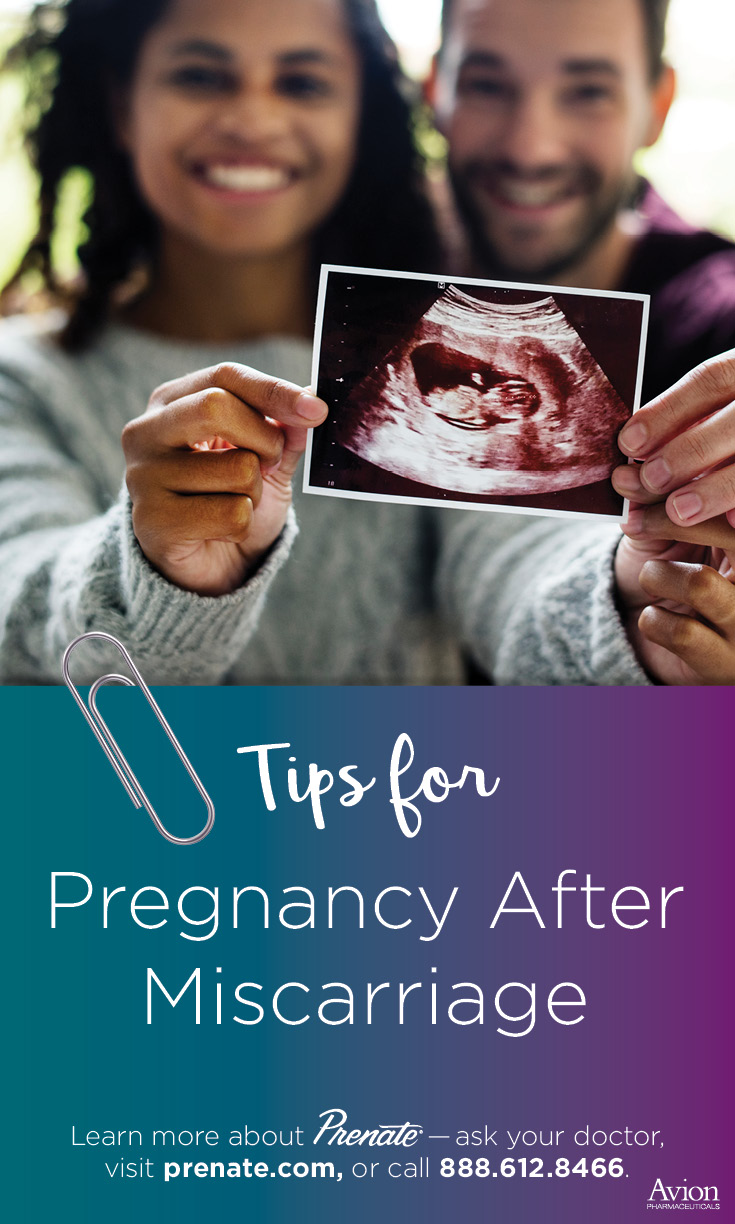Pregnancy After a Miscarriage
June 5, 2020
Early pregnancy loss, or miscarriage, is an emotional and challenging experience. However, miscarriage is a fairly common occurrence among expecting moms. For most women, it is possible to have a healthy pregnancy after miscarriage. But it may help to understand how and why miscarriages occur, know the warning signs of a miscarriage, and follow the best practices to support positive pregnancy outcomes.What is Miscarriage?
Miscarriage occurs when a baby dies in the womb within the first 20 weeks of pregnancy. Miscarriage can happen for a variety of reasons, and very often, the reasons for miscarriage are unknown. About 10 to 15 percent of pregnancies end in miscarriage for women who know they are pregnant. It is difficult to determine an exact rate of miscarriage, since many women may have experienced a miscarriage before knowing they were pregnant. However, experts estimate that as many as half of pregnancies may end in miscarriage.1
What Are the Causes of Miscarriage?
Current medical science has not identified all of the causes of miscarriage. But miscarriage and repeat miscarriages may be linked to several issues, including chromosomal problems, problems with the uterus or cervix, and infections.1
Some examples of these may include:
- Sexually transmitted infections (STIs) or listeriosis (a type of food poisoning)
- Cervical insufficiency (also called incompetent cervix), which is when the cervix dilates too early during pregnancy
- Fibroids or scar tissue in the uterus
- Septate uterus, a congenital uterine abnormality in which the uterus is divided in two by a band of muscle tissue
- Blighted ovum, which is when an embryo is implanted in the uterus but does not develop into a baby
- Molar pregnancy, which is when tissue in the uterus forms into a tumor during pregnancy
These are just a few of the more common, identifiable causes of miscarriage. Very often, miscarriage may occur without any of the above conditions being present. A healthcare provider can help patients determine if one or more of these conditions may be present.
Risk Factors for Miscarriage and Repeat Miscarriages
Any pregnant woman may experience a miscarriage, and the specific reason for the miscarriage may not be able to be determined. However, certain risk factors can make women more likely to have a miscarriage. Age, overall health, and lifestyle are the three most significant factors to consider.
Women who are age 35 or older are considered to have a higher risk of having a miscarriage. This is primarily because, as women age, the quantity and quality of their eggs begin to decline. Research suggests that the combination of pre-existing medical conditions such as high blood pressure or diabetes, and the lower quality of eggs, could be a strong contributing factor for miscarriages in women 35 and older.2
In addition to age and pre-existing medical conditions, a woman’s lifestyle can have a significant impact on her pregnancy. Smoking, drinking, taking illicit drugs, abusing prescription medications, or being exposed to other harmful chemicals can all increase the risk of pregnancy loss.2
Signs and Symptoms of Miscarriage
The most common signs and symptoms of miscarriage include bleeding or spotting from the vagina, lower abdominal cramps (like the ones you may feel during your period), and severe belly pain.2 If you experience any of these signs or symptoms, contact your healthcare provider immediately. Although some women may experience these symptoms early in pregnancy and not miscarry, it’s always best to be extra cautious.
Trying to Conceive After a Miscarriage
Most women can have a healthy pregnancy after a miscarriage. Despite some misconceptions, women who have had a miscarriage do not necessarily have to wait very long to begin trying to conceive. In fact, a 2016 study found no physiological evidence to support the claim that women should delay trying to conceive again after experiencing a miscarriage.3 Most women can physically recover from a miscarriage within a few weeks to a month. However, some women may take significantly longer to heal emotionally.1
Having a miscarriage or stillbirth can be emotionally devastating, and many women (as well as their partners and families) need to grieve the loss. As with any form of grief, there is no prescribed time limit for grieving a miscarriage. A woman who has gone through this common, yet traumatic event should consult her gynecologist/obstetrician, mental health professional, and any other medical professional in her health and wellness network for guidance. The bottom line is that only you will know for sure when and if you feel emotionally ready to begin trying to conceive after a miscarriage.
Staying Healthy – Your Best Defense Against Miscarriage
The best way to prevent miscarriage is to take care of yourself before, during, and after conceiving. Establishing healthy lifestyle habits before you conceive may make it easier to maintain a healthy lifestyle during your pregnancy and postpartum. If you need help adopting healthy lifestyle habits, or quitting unhealthy habits, talk to your doctor. He or she will likely be able to advise you on the best course of action and may offer additional resources to help.
Prenate® Vitamin Family
This post is sponsored by Prenate® Vitamin Family, a line of prescription prenatal supplements dedicated to enhancing preconception, prenatal, and postpartum nutrition in women. Talk with your doctor about how taking a daily prescription prenatal or postnatal vitamin could help support a healthy pregnancy and postpartum wellness.
You Are About To Leave This Website
By clicking continue, this link will take you to a website to which Alora Pharmaceuticals Policies & Terms of Use do not apply. Alora and its subsidiaries do not control the content or accuracy of third-party websites and assume no responsibility for their use.











